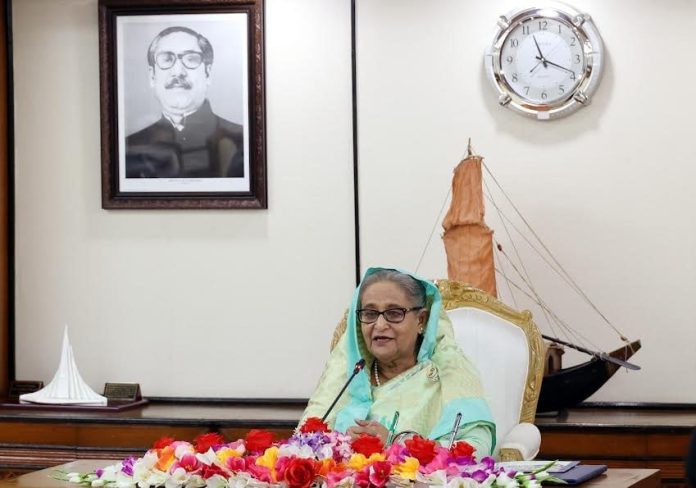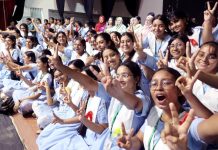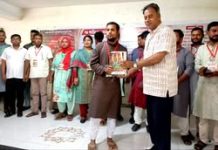
DHAKA, Nov 28, 2022 (BSS) – Prime Minister Sheikh Hasina today said her government took every possible measure so the education sector does not fall behind, though the COVID-19 pandemic and the Russia-Ukraine war exposed it to several challenges.
“Coronavirus and war created many obstacles for us,” she said while releasing Secondary School Certificate (SSC) and equivalent exams results at the PMO at Tejgaon.
The premier said the situation required her government to be more cautious and economical, but the uninterrupted education process must not be compromised.
“So we are taking all measures to make sure the education system never falls behind,” she said
Sheikh Hasina said her government is making education multidimensional considering the ever-changing world with invention of newer technologies and advancement of science to prepare the new generations with appropriate education as they can compete in modern society.
Calling the youths as the power of Bangladesh, she opined that it is required to make them worthy for the fourth industrial revolution.
The prime minister said the fourth industrial revolution is knocking at the door and it would be transformed into a digitised system in the age of science and technology.
She said her government is attaching topmost priority to build skilled manpower as their demands are increasing rapidly at home and abroad at the advent of the fourth industrial revolution.
“We have to take initiative to educate our children from the very childhood in such a way as they can cope with the changes since the inception of the fourth industrial revolution,” she added.
The premier said they are setting up 100 economic zones across the country in where foreign and local investments will come in large numbers and it requires huge skilled manpower.
She said she is not in favour of sending Bangladeshis abroad as unskilled rather she wants to send them as competent manpower.
“So, we’re making the education multi-dimensional (incorporating science, technology and vocational medium to education) so our country can take advantage (of the modern education),” she said.
The students are getting the chance of taking vocational education and training since class six which will help them build their fortunes as not everyone will go to a high position after having a BA and MA degree.
The prime minister reiterated her call to all to study attentively as none can fail in the examinations after expressing her heartfelt greetings to the students who passed successfully and wishing best of luck to others for the next time.
She asked the guardians to change the mindset that their children would get no education unless they study in some famous schools despite many noted dignitaries including knowledgeable persons, scientists, civil service officers and leaders in the country came out of district schools.
“So, such schools should not be neglected,” she said, adding that it is easy for the good schools to get good results by dealing with good students.
The prime minister said the credit should go to those (teachers or schools) who can make their mediocre students qualified.
“They should be given support and rewarded,” she added.
The prime minister said her government has given topmost priority to education as she believed no country can eradicate poverty without education.
She gave a brief description of her government initiatives such as giving text books free of cost, stipends and scholarships to the students, introducing free school feeding, setting up new schools, colleges, universities on general, medical, science and technology for overall development of the education.
“We have implemented the millennium development goals successfully and are in hot pursuit to implement the sustainable development goals in due time,” she said.
“We have attained the status of a developing nation. So, we have to work with a target that we never fall back from developing nation status,” she said.
Education Minister Dr Dipu Moni handed over the summary and statistics of the results to the premier at the Prime Minister’s Office (PMO) here.
Deputy Minister for Education Mohibul Hassan Chowdhoury and Secondary and Higher Education Division Secretary Md. Abu Bakr Siddique were present, among others, at the function.
Earlier, the chairpersons of 11 education boards – nine general, one madrasah and one technical education – handed over the results.
A total of 19,94,137 examinees appeared in the SSC and equivalent examinations this year and of them, 17,43,619 students passed the examinations with 87.44 percent pass rate.









